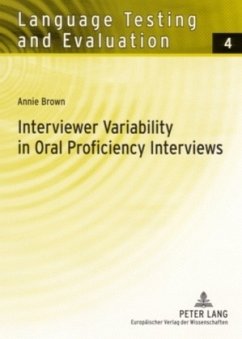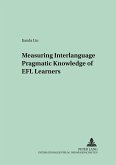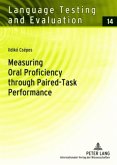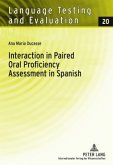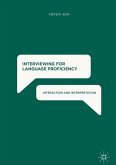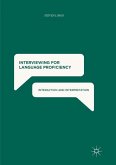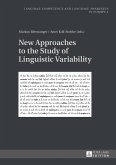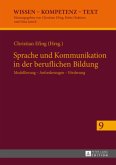This book was the winner of the 2005 Jacqueline A. Ross Dissertation Award for second or foreign language testing.
The assessment of speaking skills is an important part of the language learning process, whether carried out by teachers in the classroom or through proficiency tests administered by testing agencies. However, the complex and subjective nature of speaking assessment raises a number of important questions about the validity, reliability and fairness of test procedures. This book, which is based on research into the speaking test of the International English Language Testing System (IELTS), shows how the performance of learners in oral proficiency interviews cannot be taken unequivocally as an indication of their ability, as variation in interviewer behaviour can have an impact both on learner performance and on ratings outcomes.
The assessment of speaking skills is an important part of the language learning process, whether carried out by teachers in the classroom or through proficiency tests administered by testing agencies. However, the complex and subjective nature of speaking assessment raises a number of important questions about the validity, reliability and fairness of test procedures. This book, which is based on research into the speaking test of the International English Language Testing System (IELTS), shows how the performance of learners in oral proficiency interviews cannot be taken unequivocally as an indication of their ability, as variation in interviewer behaviour can have an impact both on learner performance and on ratings outcomes.

